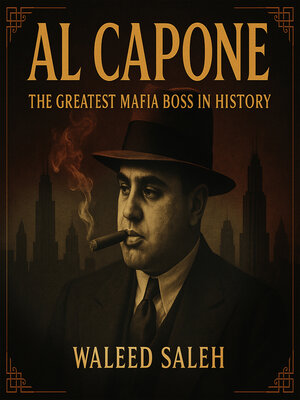
Sign up to save your library
With an OverDrive account, you can save your favorite libraries for at-a-glance information about availability. Find out more about OverDrive accounts.
Find this title in Libby, the library reading app by OverDrive.



Search for a digital library with this title
Title found at these libraries:
| Library Name | Distance |
|---|---|
| Loading... |
Al Capone: The Greatest Mafia Boss in History presents the definitive account of America's most notorious criminal legend. This compelling biographical narrative traces the extraordinary journey of Alphonse "Al" Capone from his childhood in Brooklyn's impoverished Italian neighborhoods to his reign as the undisputed emperor of Chicago's criminal underworld.
During the tumultuous Prohibition era, Capone didn't just break laws—he rewrote them. With monthly revenues exceeding $100 million (equivalent to over $1.3 billion today), his organization operated like a corporate empire, complete with hierarchical management, strategic expansion, and systematic corruption of government officials. This book reveals how Capone managed to control approximately 60% of Chicago's police force and government officials, essentially running a shadow state within America's third-largest city.
The narrative explores the complex contradictions of Capone's character: the ruthless killer who was also a devoted family man, the terrorist who played Robin Hood to Chicago's poor, and the criminal mastermind who ultimately fell not to rivals' bullets but to tax evasion charges. Through detailed accounts of the infamous "Beer Wars," the St. Valentine's Day Massacre, and the political machinations that enabled his rise, readers witness both the seductive allure and devastating consequences of unchecked power.
More than just a crime story, this book serves as a profound study of American society during one of its most transformative periods. It examines how immigration, economic disparity, and flawed government policies created the perfect storm for organized crime to flourish. The tragic conclusion—Capone's mental deterioration from syphilis and his pathetic final years—offers sobering lessons about the ultimate futility of power built on violence and corruption.







